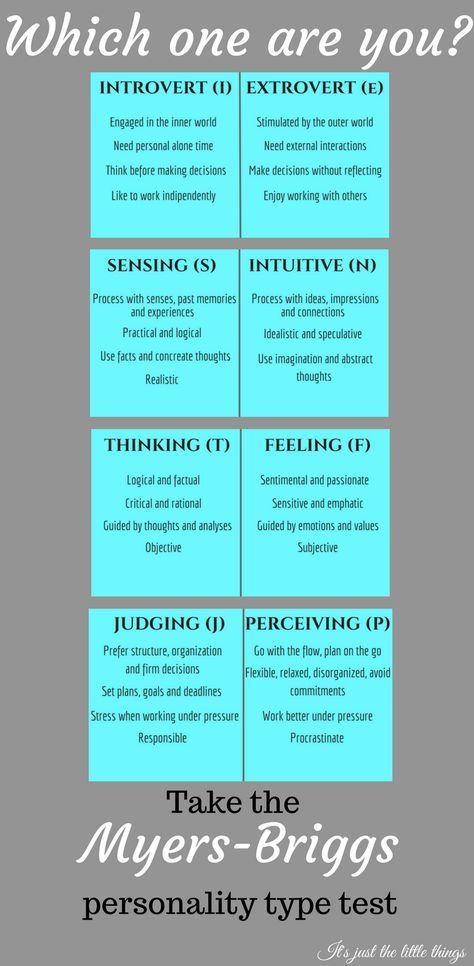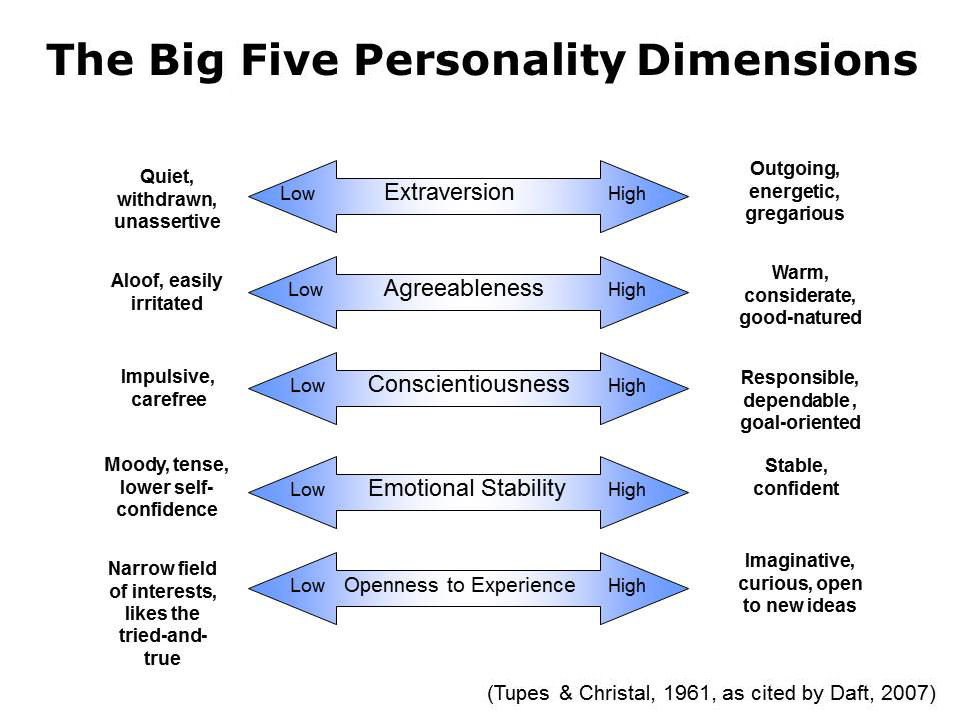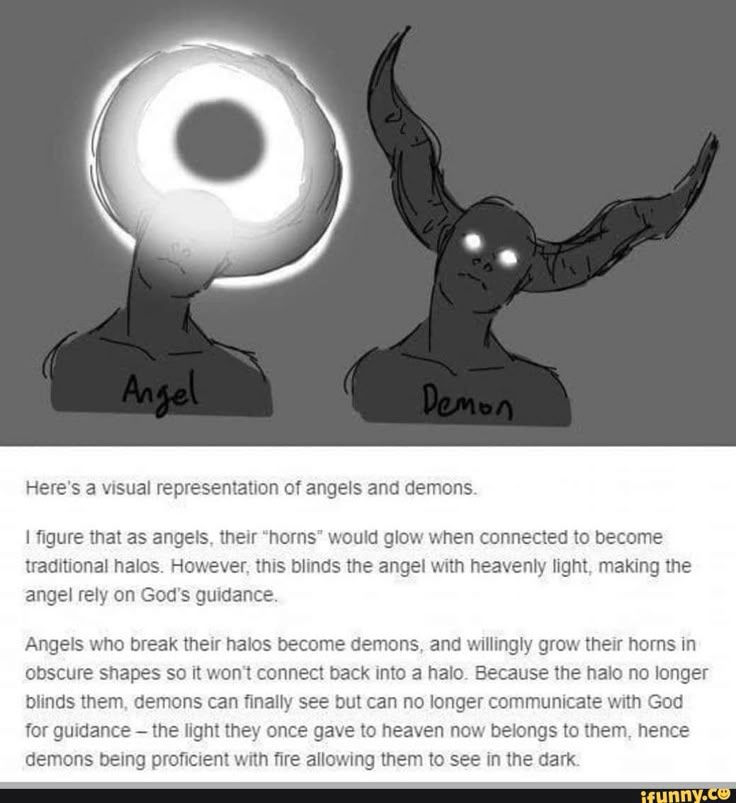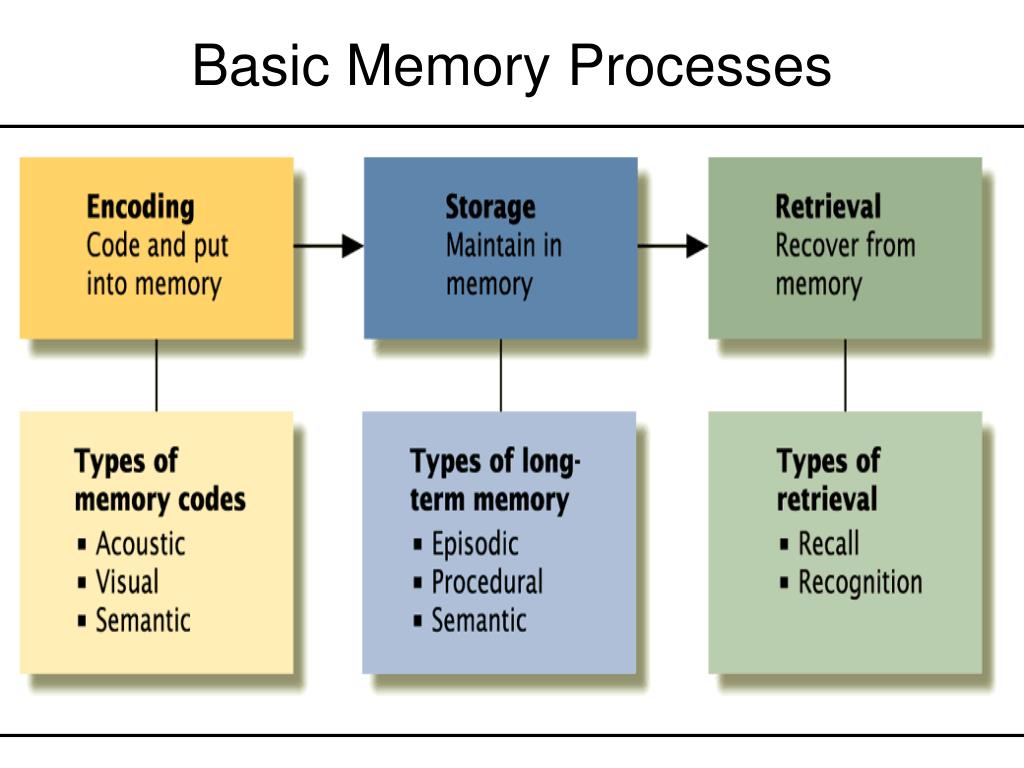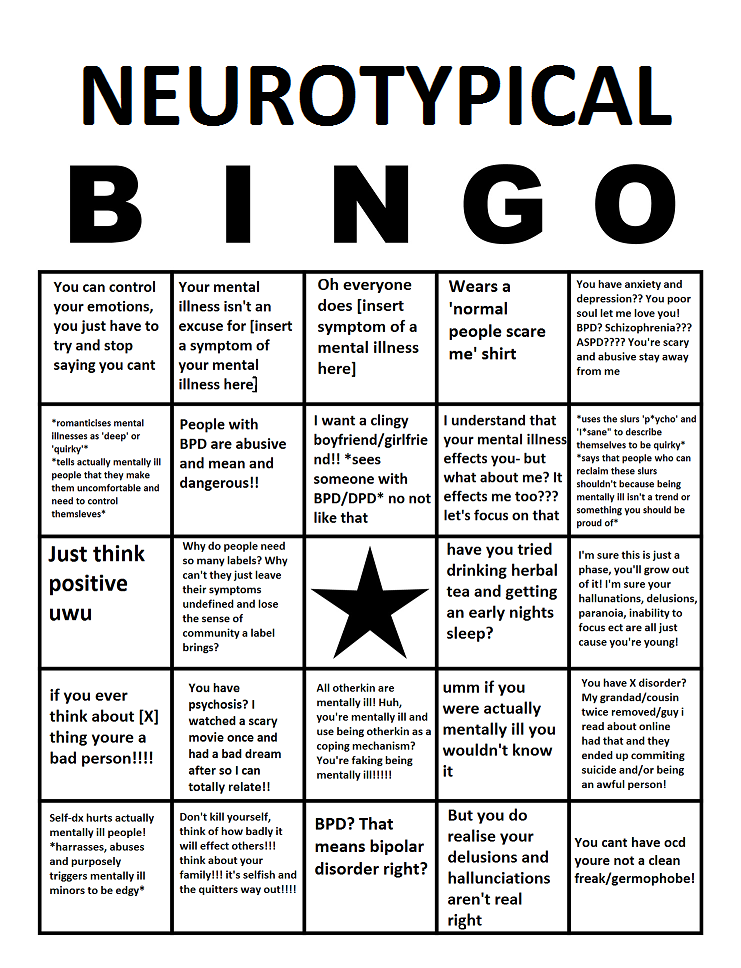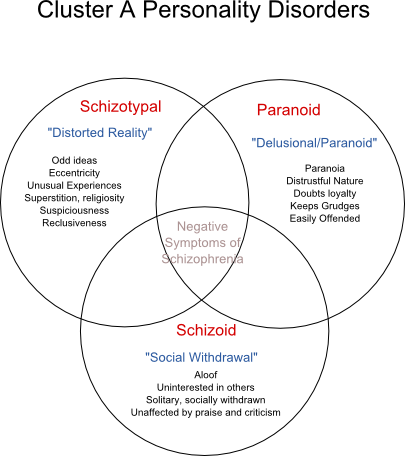Myers briggs personality test rarest type
What is the Rarest Personality Type?
Of all the 16 possible personality types, you might be curious to know which is least common and where your type ranks. Here’s everything you need to know about the rarest personality type, including traits, gender differences and other uncommon types.
Overall, the rarest personality type is INFJ
The rarest personality type is the INFJ personality type, known as ‘The Counselor’. INFJ is the rarest personality type across the population, occurring in just 2% of the population.
It is also the rarest personality type among men.
INFJ stands for Introversion, Intuition, Feeling, and Judging. This unique combination is hard to find in most people.
The INFJ personality type is characterized by their deep sense of integrity and their natural intuition. INFJs are skilled at interpreting the emotions and motivations of others and they work hard to help the people around them. This personality type tends to be idealistic and seeks out deep, meaningful connections with people.
They can often come across as quiet and gentle.
However, the situation is not clear cut
While INFJs are generally understood to be the rarest personality type, there are some other factors to bear in mind. Personality types can vary geographically with some personality types occurring more frequently and more rarely depending on the country, region or environment.
There are also some differences between the rarest personality type for men and women.
The rarest personality type for men
Like the general population, the rarest personality type among men is INFJ. Among men, INFJs make up just 1% compared to 2% of the general population.
There are some questions about why this might be. The INFJ type includes some personality traits that Western society typically views as feminine traits such as high levels of emotional intelligence and empathy. INFJs are known to be sensitive and quiet, often spending time listening to the concerns of others rather than sharing their own thoughts.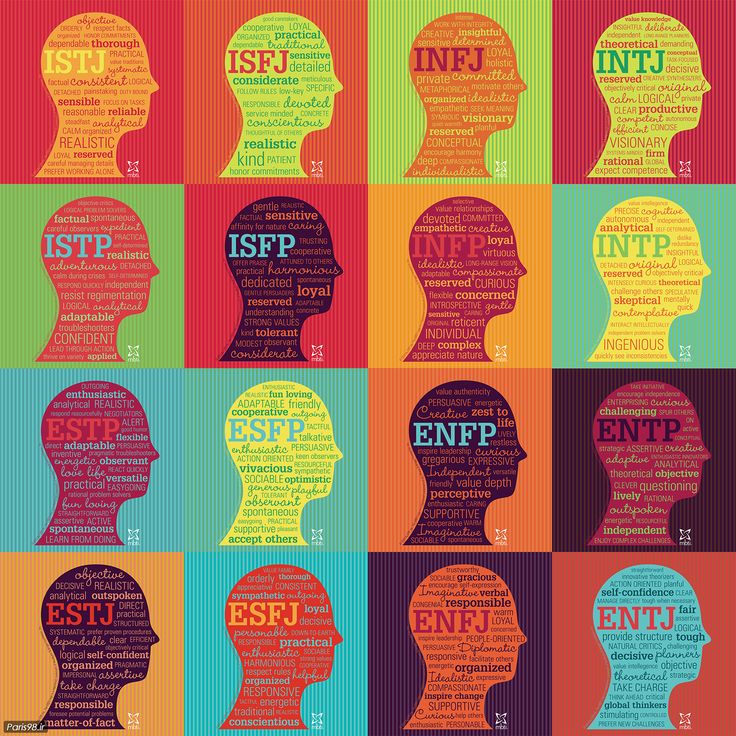
It’s possible that boys are raised in a way that encourages them to subdue these aspects of their personality. Maybe they are making choices or exhibiting behaviors that give them a different type on a personality test. We don’t really know why, but the data shows that INFJ is the rarest personality type for men.
The rarest personality type for women
For women, however, the rarest personality type is INTJ and ENTJ. Just 1% of women type as INTJ and ENTJ respectively.
Among women, INFJ is only the third rarest personality type with approximately 2% of women categorized as INFJ.
Both INTJ women and ENTJ women are extremely rare in the general population. It is not clear why this would be. However, the INTJ and ENTJ personality types are associated with being strategic, assertive and analytical. They tend to be less capable at reading their own emotions and the emotions of others. These traits are not typical of women in general, and it could be that – as with INFJ men – INTJ/ ENTJ women are changing their reported behaviors or honing their weaker skills to fit in.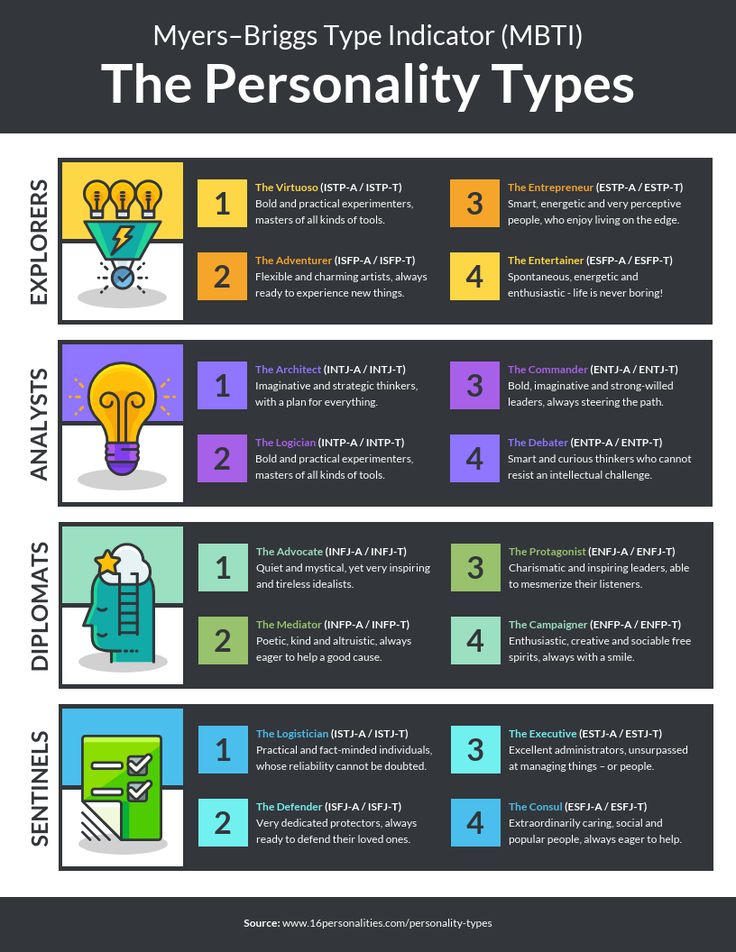
The top 5 rarest personality types ranked
Curious to know the other rarest personality types? INFJ isn’t the only personality type that’s hard to find! There’s actually a large group of personality types that are pretty uncommon in the general population.
Read on to find out the top 5 rarest personality types, ranked from rarest to most common.
1. INFJ
The INFJ personality type is the undisputed top 1 rarest personality type in the general population coming in at just 2%. INFJs are especially rare among men with only 1% of men qualifying as this personality type. It is slightly more common in women at around 2%.
2. INTJ
Known as ‘The Mastermind, INTJ is the next rarest personality type in the general population and the rarest personality type among women. INTJs make up just 2% of the general population and account for 3% of men and just 1% of women.
3. ENTJ
Sharing the top spot for the rarest personality type among women, ENTJ is also one of the rarest personality types in the general population.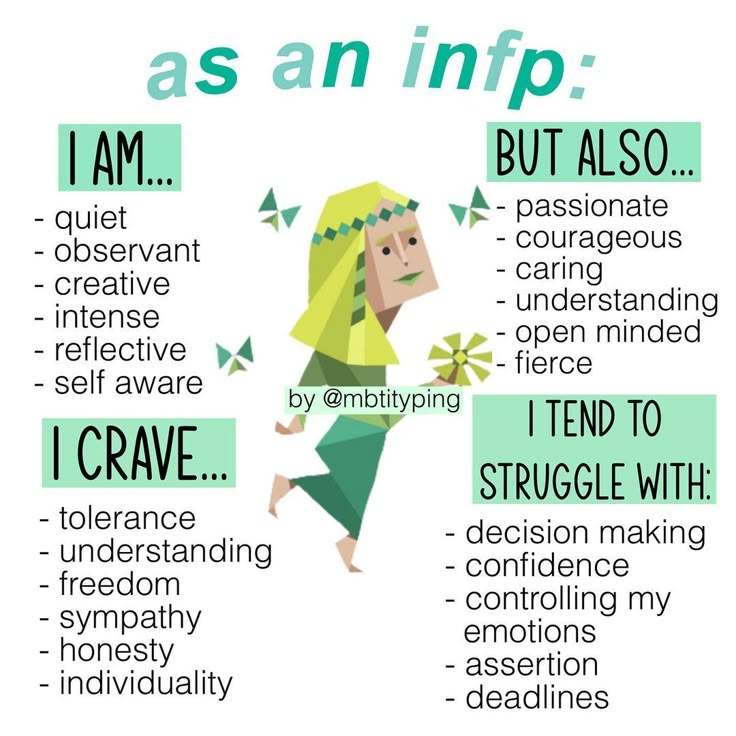 Like the closely related INTJ, ENTJs come in at just 2% of the general population, 3% of men and 1% of women.
Like the closely related INTJ, ENTJs come in at just 2% of the general population, 3% of men and 1% of women.
4. ENFJ
Another of the rarest personality types is ENFJ which can be found in just 3% of the general population. ENFJ is the second rarest personality type among men, occurring in just 2% of men. For women, the rate is a little higher at 3%.
5. ENTP
ENTP snags the 5th spot for the top 5 rarest personality types. This personality type can be found in 3% of the general population. It is slightly more common in men, with 4% of men categorized as ENTP. For women, the personality type is rarer at just 2%, making it one of the rarest personality types.
Understanding the rarest personality types
Looking at the top 5 rarest personality types, it is possible to pick out some patterns in their style of thinking and behaving. The rarest personality types tend to be Intuitives and Judgers, rather than Sensors and Perceivers.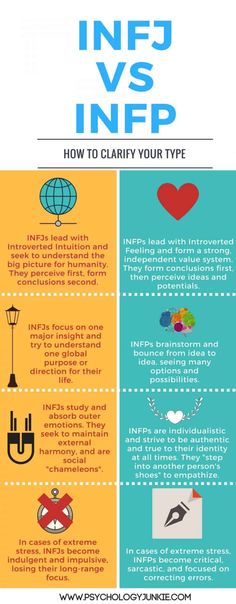
So what does that mean?
Intuition
All the rarest personality types have one thing in common: they are Intuitives rather than Sensors. This is interesting because Intuitives tend to be more abstract in their way of thinking and processing information. They like to look for patterns and theories and are generally more concerned with the future than the present.
The more common personality types tend to be Sensors. Sensors process information differently than Intuitives, preferring to focus on what they can see, hear and feel. They are often described as more practical and they look to understand the world in a more hands-on way.
Judging
There is also a high prevalence of Judging rather than Perceiving types among the top 5 rarest personality types. The Judging/Perceiving dimension of the 16 type system describes how people prefer to structure their lives. Judgers tend to look for order and structure and will prioritize planning over spontaneity.
It is more common to find people who fit into the Perceiving personality type in the general population.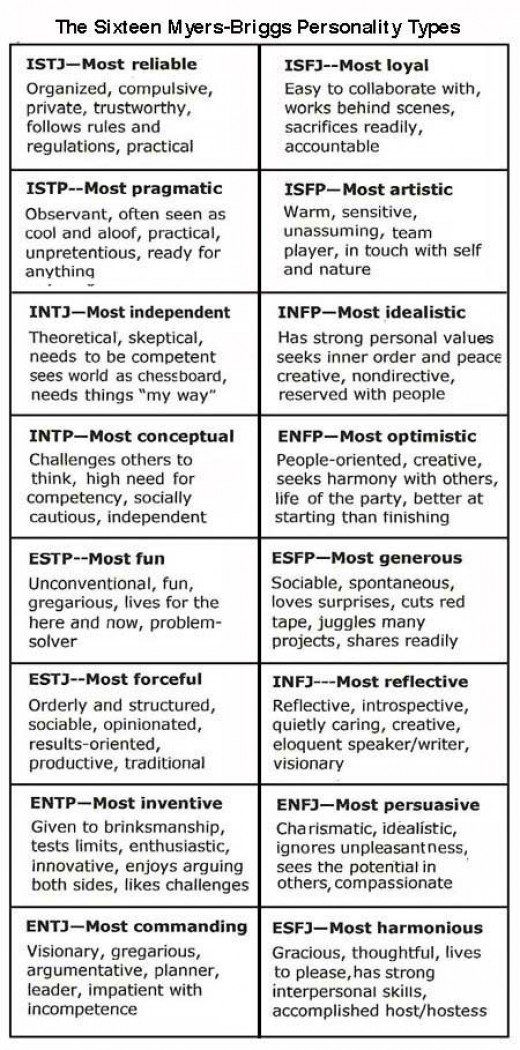 Unlike Judgers, Perceivers prefer things a little less predictable. They value flexibility and prefer to adapt rather than plan.
Unlike Judgers, Perceivers prefer things a little less predictable. They value flexibility and prefer to adapt rather than plan.
How does your type compare?
While INFJ is the rarest personality type, that doesn’t make it any better or worse than the other personality types. Each personality type has its own strengths and weaknesses, whether it is more common or harder to find in the general population.
To find out more about the 16 type system, read this next or take the test to find out your personality type!
How Rare Is Your Myers-Briggs® Personality Type?
“What is the rarest Myers-Briggs type?”
“What is the most common MBTI® type?”
These are questions I get asked daily as an MBTI® practitioner. The answers can be confusing, because statistics and surveys change from year to year. Plus many people feel that being rare is the equivalent of being “best.” Today we’re going to take a look at the rarest MBTI® (Myers-Briggs) personality types as taken from a national sample of 16,773 individuals from 23 different countries.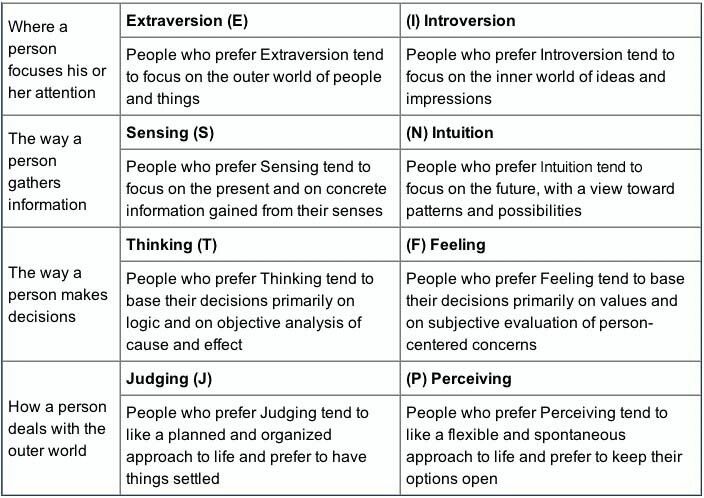 For more information on this national sample, you’ll need to pick up a copy of the MBTI® Manual – Fourth Edition.
For more information on this national sample, you’ll need to pick up a copy of the MBTI® Manual – Fourth Edition.
We’re ranking the 16 personality type from rarest to most common, but this article is by no means saying any personality types are better than others.
“But my personality type is common and I still feel misunderstood!”
Having a common personality type doesn’t mean that you will automatically fit in and feel deeply understood. Even the most common personality type only makes up 15.9% of the global sample that was used for the survey! This means that regardless of your type there’s a good chance that you feel misunderstood.
Not sure what your personality type is? Take our new personality questionnaire!
This article has been extremely controversial and the source of many angry comments and emails since I published it. All the data in this article is taken from the newest official MBTI® Manual. The results were taken from a sample of 16,773 individuals from 23 different countries.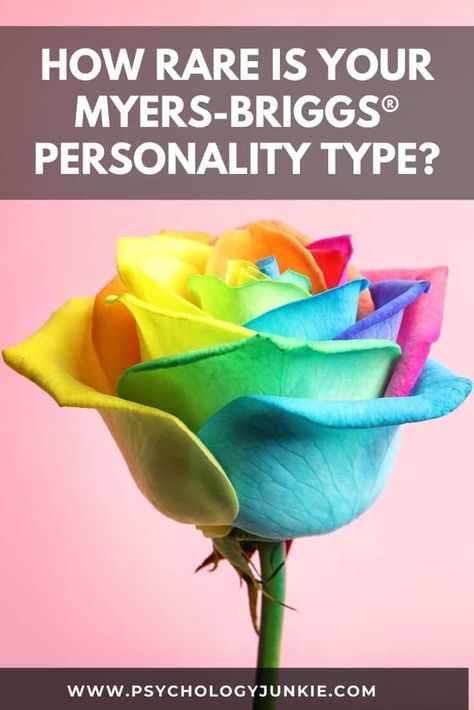 I am not concocting this information but getting it directly from The Myers-Briggs Company itself.
I am not concocting this information but getting it directly from The Myers-Briggs Company itself.
Table of contents
- Before You Write That Angry Comment…
- The Rarest Male MBTI® Type
- The Rarest Female MBTI® Type
- The Rarest to Most Common Myers-Briggs® Types
- The ENTJ – The Rarest MBTI Type
- The ENFJ – The Second Rarest MBTI Type
- The INFJ – The Third Rarest MBTI Type
- The INTJ – Fourth Rarest MBTI Type
- The ENTP – 4.3% of the National Sample
- The INTP – 4.8% of the National Sample
- The ESFJ – 5.7% of the National Sample
- The ESFP – 6% of the National Sample
- The ESTP – 6.1% of the National Sample
- The INFP – 6.3% of the National Sample
- The ISFP – 6.6% of the National Sample
- The ENFP – 8.2% of the National Sample
- The ISFJ – 8.4% of the National Sample
- The ESTJ – 9% of the National Sample
- The ISTP – 9.8% of the National Sample
- The ISTJ – 15.
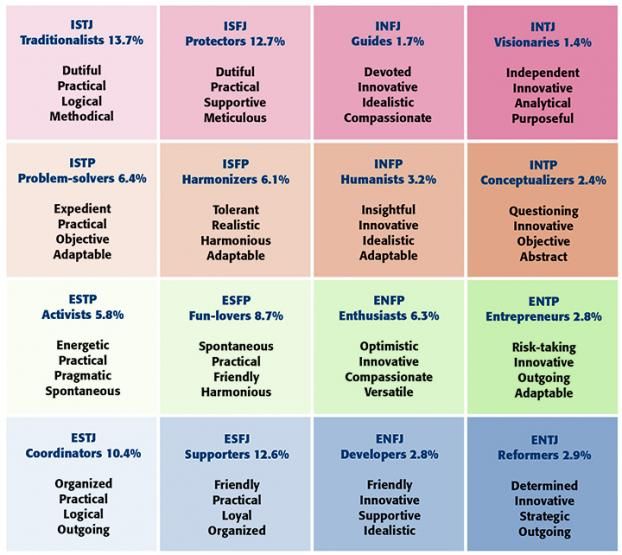 9% of the National Sample
9% of the National Sample
It’s a Tie! INFJs and ENFJs are the Rarest Male Personality Types
Men who value Intuition, Feeling, and Judging only make up 2.8% of the male population combined! Insightful and empathetic, these types have a desire to draw their communities towards progress and change. Because of their future-oriented, abstract focus, they aim to motivate people towards a vision or picture of how they want the future to be. They have a knack for understanding how to move people on an emotional level.
You can find out more about these two personality types here: 10 Talents of the INFJ and ENFJ Personality Types
The Rarest Female MBTI® TypeThe ENTJ
Female ENTJs make up only 1.5% of the female population. These ambitious types are known for their bold, strategic nature and their ability to bring people on board for their vision.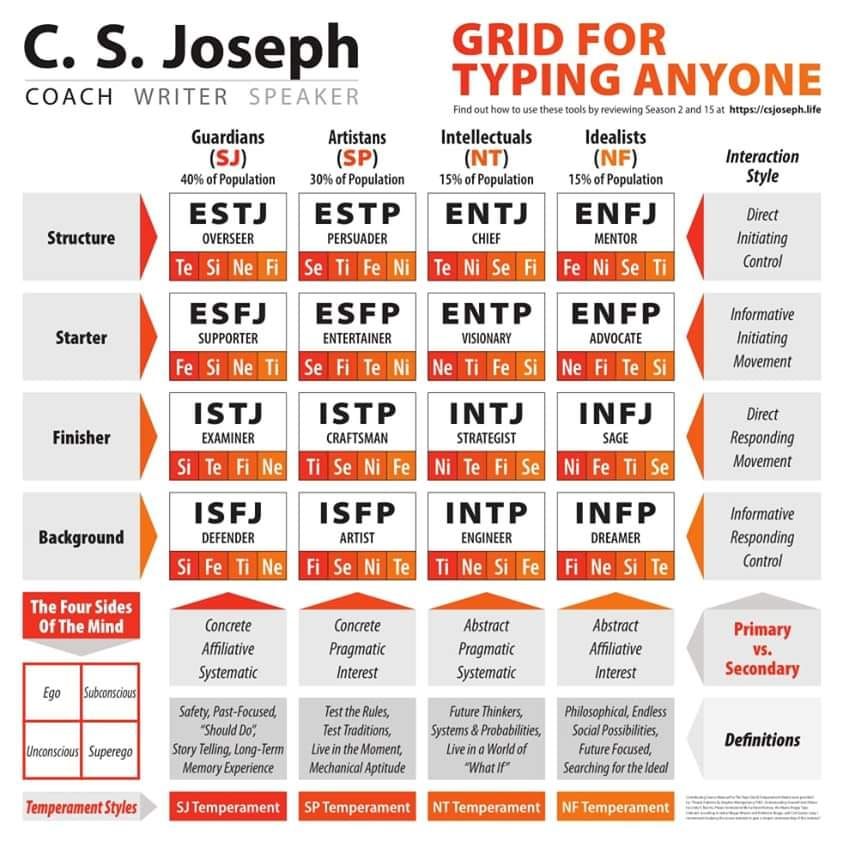 Decisive and insightful, they tend to pioneer new paths in technology and business. In fact, this type is also the highest-earning personality type!
Decisive and insightful, they tend to pioneer new paths in technology and business. In fact, this type is also the highest-earning personality type!
Making up a mere 1.8% of the population, ENTJs are the rarest of all the 16 personality types. However, these types don’t usually mind being rare – in fact, they tend to like it! As independent achievers, they don’t feel a compulsion to “fit in” as many other types do. They value intelligence and competence and are forceful in applying themselves towards their revolutionary goals.
The ENFJ – The Second Rarest MBTI TypeENFJs are the second-rarest personality type, making up only 2.2% of the population. These insightful, compelling types tend to know just the right buttons to push to motivate people towards their goals. Because they are so passionate and understanding, ENFJs have a gift for motivating people towards personal growth.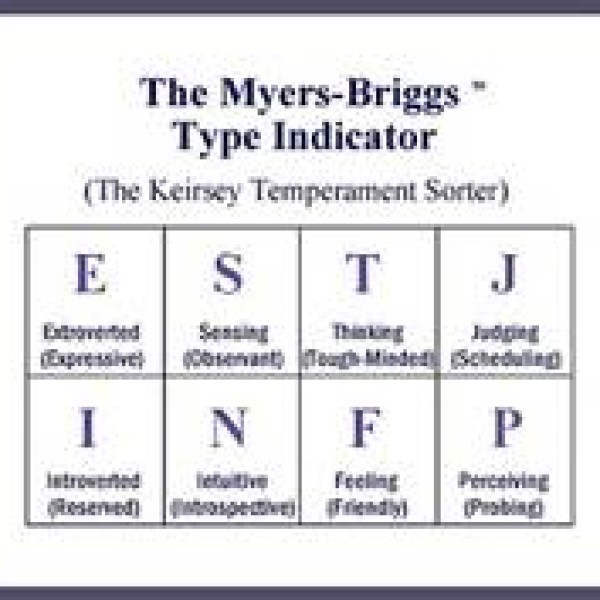 They are usually very directive and decisive in achieving goals that they feel are best for communities as a whole.
They are usually very directive and decisive in achieving goals that they feel are best for communities as a whole.
The INFJ personality long been touted as the rarest personality type of all, even by me! However, over the last decade, they have become slightly less rare and now make up 2.3% of the population. INFJs are the “Mystics” of the Myers-Briggs system and have a gift for anticipating future implications. They are primarily focused on the big picture and they tend to have an eye towards long-range plans and less of a focus on day-to-day details. These types are deeply in-tune with patterns, symbols, and abstract possibilities. Typically caring and compassionate, they have a knack for understanding human motivations.
The INTJ – Fourth Rarest MBTI TypeIntellectual, creative, and strategic – the INTJ is the second-rarest female personality type and the fourth-rarest male personality type.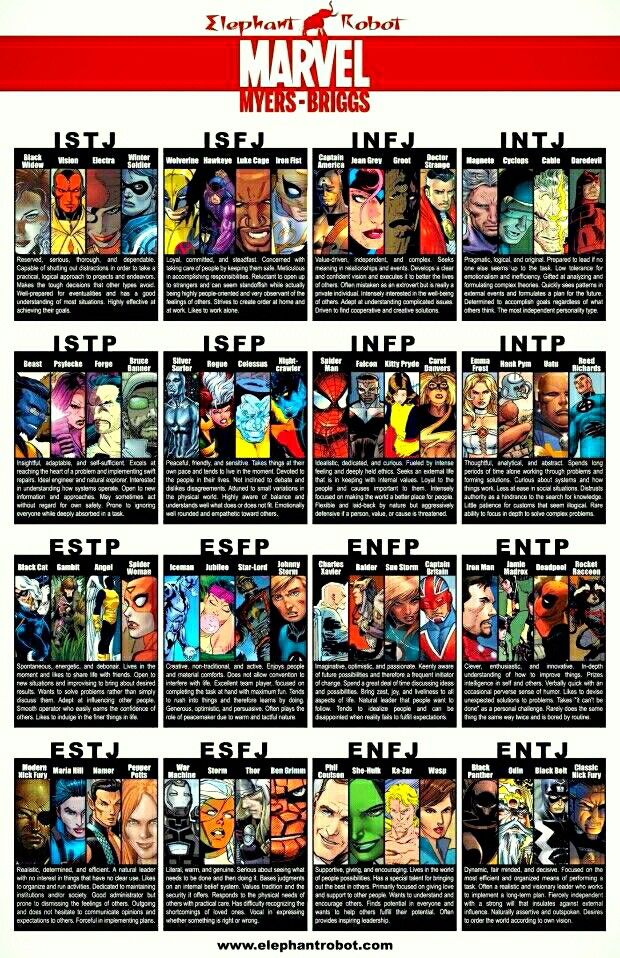 These individuals are driven to understand the deeper meaning behind what happens in life. It’s as if they want to grasp the “dance of the universe” and see more deeply into situations and events than most people ever consider in their lifetime. They naturally synthesize complex theoretical matters to devise strategies and develop visionary objectives.
These individuals are driven to understand the deeper meaning behind what happens in life. It’s as if they want to grasp the “dance of the universe” and see more deeply into situations and events than most people ever consider in their lifetime. They naturally synthesize complex theoretical matters to devise strategies and develop visionary objectives.
As the fifth-rarest personality type, ENTPs are known for their innovative, imaginative approach to life. Because they are drawn towards novelty and transformation, ENTPs are the quintessential “idea-people” of the world. Quick, ingenious, and charismatic, they are adept at generating possibilities and analyzing them in a strategic way.
The INTP – 4.8% of the National SampleQuiet and reflective, INTPs have a desire to understand the logical explanation for everything that happens. Because these types are so deeply analytical, they have a unique ability to focus in-depth on a problem in order to solve it.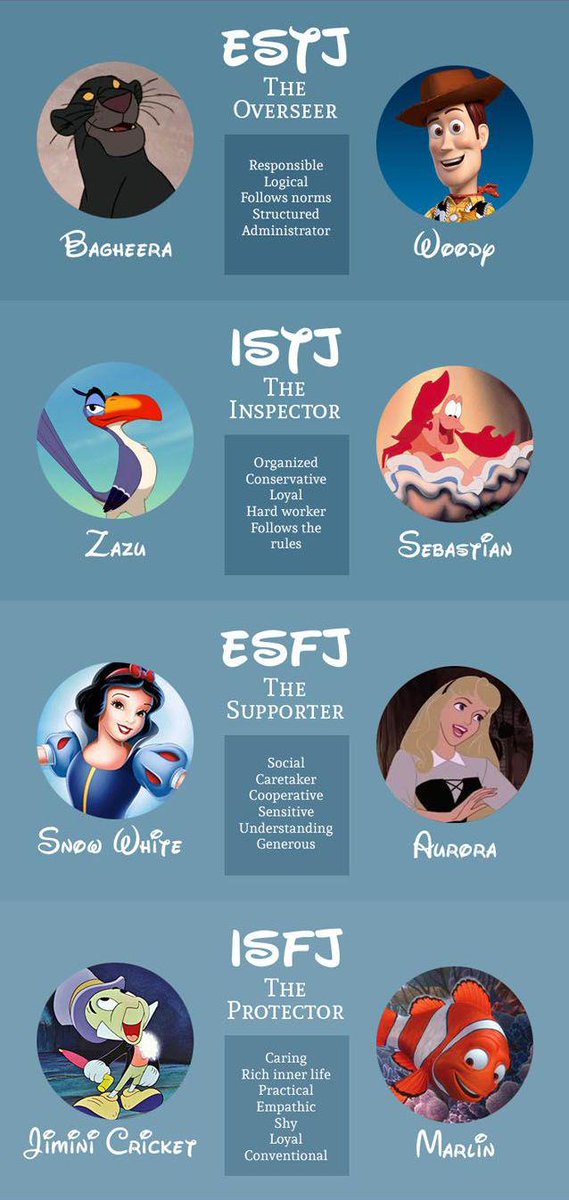 They rarely get impatient when problem-solving, unless they are pressured or micro-managed by others (which they hate). They are typically skeptical, curious, and creative.
They rarely get impatient when problem-solving, unless they are pressured or micro-managed by others (which they hate). They are typically skeptical, curious, and creative.
The rarity of ESFJs surprised me because they were ranked as the 2nd most common personality type in results from 1972-2002. I don’t know why this type has become rarer, but it’s an interesting new development! ESFJs are the warm-hearted, conscientious centers of most communities. These types work with determination to create a harmonious, fair world. They are typically pragmatic, loyal, and supportive and contribute a great deal to the causes they believe in.
The ESFP – 6% of the National SampleOutgoing, charismatic, and friendly – ESFPs have a zest for life that is nearly unmatched. These adventurous souls aim to live each day to its fullest potential and approach work, life, and family with a sense of fun.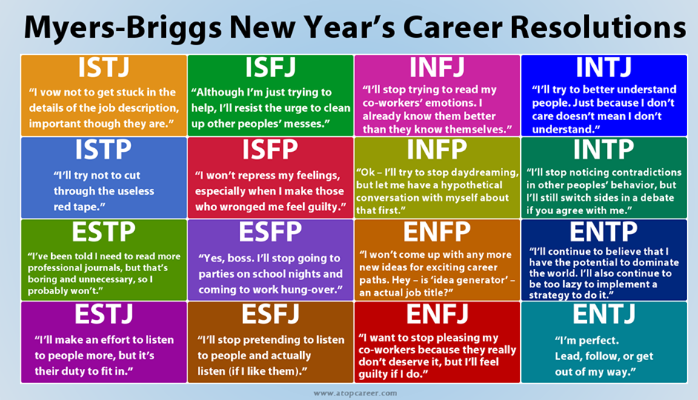 Flexible and spontaneous, ESFPs adapt quickly to new people and environments.
Flexible and spontaneous, ESFPs adapt quickly to new people and environments.
Realistic and action-oriented – ESTPs focus on enjoying life and solving real-world, immediate problems. These spontaneous, adventurous types enjoy taking smart risks and often pursue entrepreneurial careers or ventures in the stock market or law enforcement. They enjoy thinking on their feet and having an active, fast-paced life.
The INFP – 6.3% of the National SampleIdealistic, compassionate, and creative – INFPs are often the artists, authors, and background helpers of the world. They are usually quick to see possibilities and potential in people and themselves. They usually appear flexible on the outside but inwardly are very committed to their values and beliefs.
The ISFP – 6.6% of the National SampleSensitive but pragmatic – ISFPs are passionately loyal to the values that are important to them.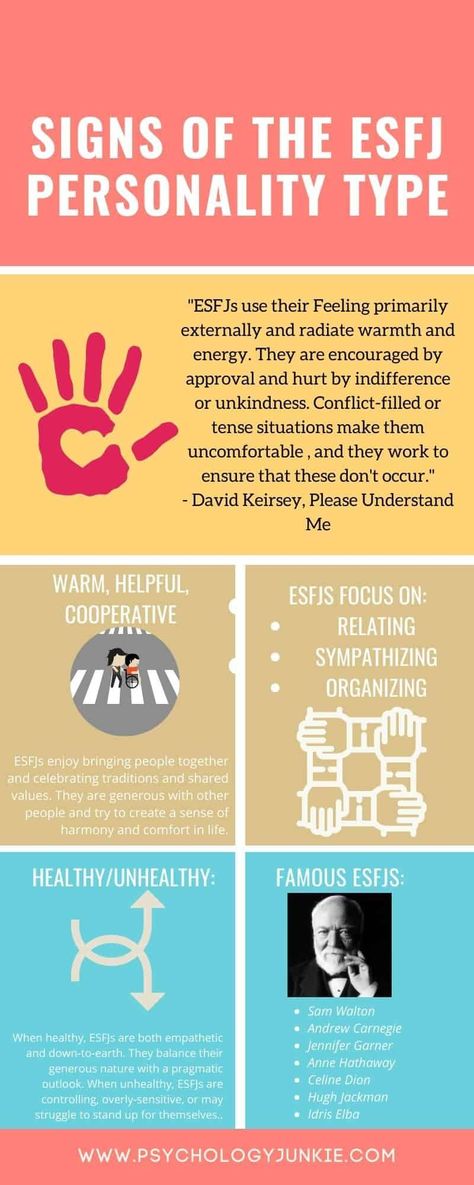 They have a free-spirited, inquisitive approach to life and tend to enjoy traveling, creating, and spending time in nature. These types want to make a hands-on difference in the lives of others and are over-represented in health-care and emergency service industries as a result.
They have a free-spirited, inquisitive approach to life and tend to enjoy traveling, creating, and spending time in nature. These types want to make a hands-on difference in the lives of others and are over-represented in health-care and emergency service industries as a result.
Compassionate and charismatic – ENFPs see life as full of possibilities and potential. They quickly make connections between events and information and make decisions based on the patterns they see. These types readily give support and reassurance to others and have a flexible, spontaneous approach to life.
The ISFJ – 8.4% of the National SampleSupportive and loyal, ISFJs are often the good Samaritans of the type community. These types believe in nurturing their communities and preserving the details and traditions that give life a sense of beauty and meaning. They are usually considerate, responsible, and conscientious.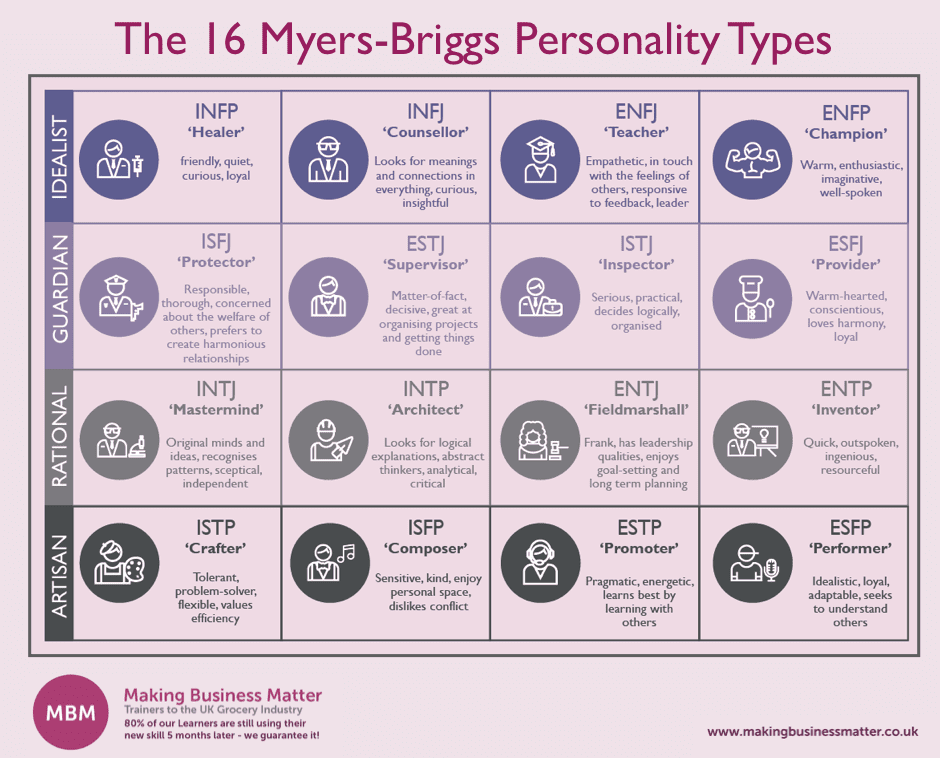
Determined, practical, and matter-of-fact – ESTJs move through life with a desire to organize everything for maximum efficiency. These types focus on getting results without expending a lot of unnecessary energy. They have an eye for details and a clear set of logical standards they adhere to. They are usually very ambitious and determined in implementing their plans.
The ISTP – 9.8% of the National SampleAdventurous and analytical, ISTPs are able to find solutions quickly in make-or-break situations. They enjoy gathering information and using it in a hands-on way in the real world. Autonomous and often mysterious, these types are highly observant to their surroundings and quickly find opportunities and resources that can be used to aid them in their goals.
The ISTJ – 15.9% of the National SampleAs the most common personality type, ISTJs are the foundation of many communities and workplaces around the world.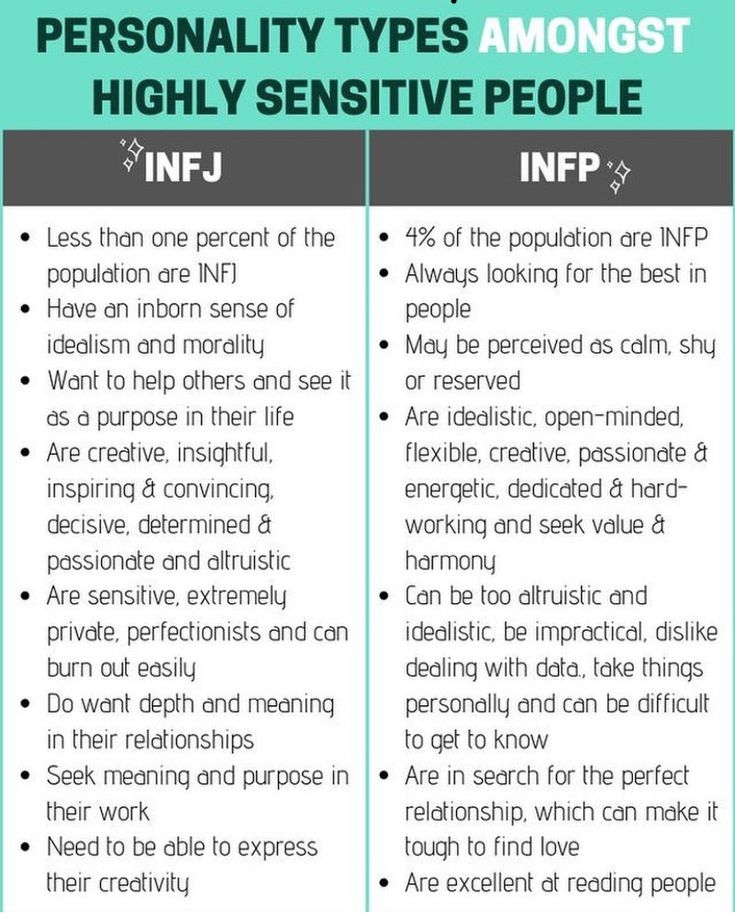 These types are highly detail-oriented, pragmatic, and grounded. Because they are so detail-oriented and dependable, they are prized in the workforce and are often over-represented in careers like accounting and law enforcement. ISTJs strive to be reasonable in their decisions and value common sense and wisdom gained by experience. Because of this, they are usually quick to decide logically how to handle situations. They usually work towards goals steadily, regardless of roadblocks or distractions. It’s important for them to make the world a more organized, sensible, and effective. It’s a good thing we have so many of these types in the world!
These types are highly detail-oriented, pragmatic, and grounded. Because they are so detail-oriented and dependable, they are prized in the workforce and are often over-represented in careers like accounting and law enforcement. ISTJs strive to be reasonable in their decisions and value common sense and wisdom gained by experience. Because of this, they are usually quick to decide logically how to handle situations. They usually work towards goals steadily, regardless of roadblocks or distractions. It’s important for them to make the world a more organized, sensible, and effective. It’s a good thing we have so many of these types in the world!
Source:
MBTI® Manual – Fourth Edition
What Do You Think?
Did you enjoy this article? Did you feel like your personality traits are rare? Remember that type rarity doesn’t equal type superiority. Too many people let themselves think that! Each individual is completely unique, regardless of how rare or common their personality type is.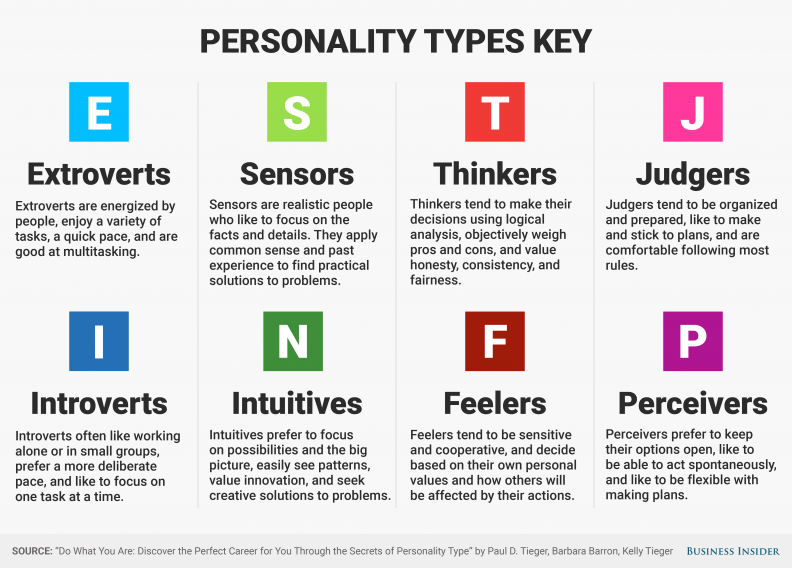 Let us know in the comments!
Let us know in the comments!
Find out more about your personality type in our eBooks, Discovering You: Unlocking the Power of Personality Type, The INFJ – Understanding the Mystic, and The INFP – Understanding the Dreamer. You can also connect with me via Facebook, Instagram, or Twitter!
Other Articles You Might Enjoy:
The Lovable Quirks of Every Myers-Briggs® Personality Type
The Obnoxious Versions of Every Myers-Briggs® Personality Type
Here’s Which Personality Types Read the Most Books
Sources:
The MBTI® Manual – Fourth Edition
- More
The world's 5 rarest personality types according to the Myers-Briggs typology
Trending
When you hear the word "rare", you most likely imagine someone close to you who is really special to you .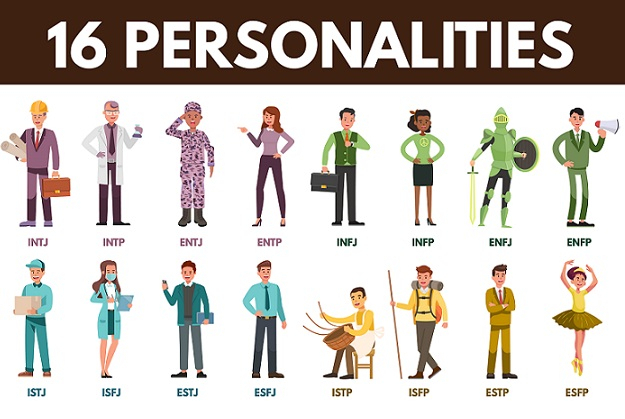 Maybe this is your best friend or relative - or maybe you yourself. You know who I'm talking about, people who don't look like anyone else, like they're made of a different fabric. Maybe this unique person has one of the 5 rare personality types , which I will tell you about today!
Maybe this is your best friend or relative - or maybe you yourself. You know who I'm talking about, people who don't look like anyone else, like they're made of a different fabric. Maybe this unique person has one of the 5 rare personality types , which I will tell you about today!
By the way, let me remind you how to "read" the name of personality types in MBTI. In general, the type is calculated based on what you like or dislike, what you are strong in and what you are a little weak in. Tests are aimed at calculating what you are more inclined towards: extraversion (E) or introversion (I) ; sensory (S) or intuition (N) ; think more (T) or feel (F) ; condemn (J) or perceive (P) .
In total, the Myers-Briggs typology identifies 16 personalities whose names are combined from the letters and their meanings above.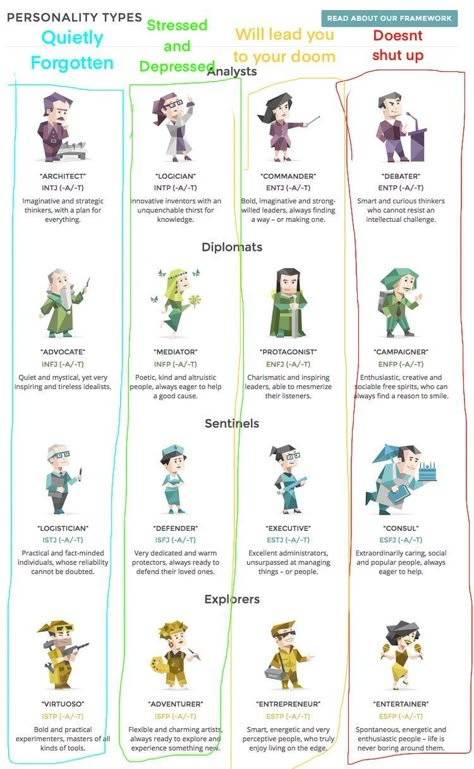 There are some especially rare in these 16 types, which even in Russia and in the world are quite rare. Well, are you ready to look for something special in yourself and others?
There are some especially rare in these 16 types, which even in Russia and in the world are quite rare. Well, are you ready to look for something special in yourself and others?
ENFJ - "Coach"
🌍 How much in the world: 2.5%
⭐ How much in Russia: 4.77%
Top 3 countries with the most Coaches: Gibraltar (9.40%), Lebanon (9.09%), Fiji (8.94%).
Top 3 countries with the least number of Coaches: Myanmar (Burma) (4.52%), Singapore (4.52%), Latvia (4.61%).
People who are extroverted, intuitive, sensory and rational tend to be a bit unusual and stand out from the crowd. Coaches intuitively feel people, even without words. But what really sets them apart is the use of their empathy. If INFJs use it for the benefit of others, then ENFJs do it and use their abilities for themselves. nine0003
Yes, they are happy to help, sincerely, but the Coaches will not forget about themselves.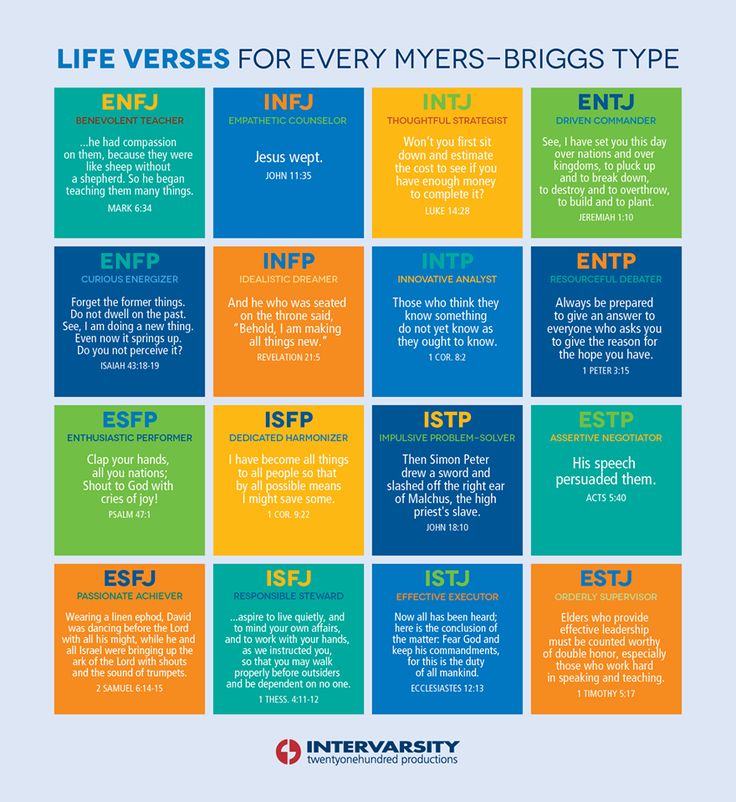 Their charisma and obsession with what they love never go unnoticed, sometimes they can even seem like fanatics. But what really sets ENFJs apart from other types is their special ability to see potential in other people . And, which is also cool, to inspire them and help them achieve their goals.
Their charisma and obsession with what they love never go unnoticed, sometimes they can even seem like fanatics. But what really sets ENFJs apart from other types is their special ability to see potential in other people . And, which is also cool, to inspire them and help them achieve their goals.
ENTJ - "Commander"
🌍 How many in the world: 2%
⭐ How many in Russia: 4.47%
Armenia (6.90%).
Top 3 countries with the least number of Commanders: Brunei (1.18%), Singapore (1.26%), Faroe Islands (1.28%).
This personality type is distinguished from ENFJ by a special combination of intuition and extraversion. Last Commanders use first, support first. ENTJs are great at networking and meeting new people, combining friendliness and sociability with a rich inner world. At the same time, Commanders also have negative traits, such as a tendency to blame other people for their failures or to be impatient. nine0003
nine0003
Commanders are unique in their insight. They can quickly figure out a problem and find an efficient solution. Whether it's a slow workflow or a lack of a schedule, ENTJs can find a way to transform chaos into harmony to suit their needs. Moreover, the Commander can easily maintain order for a long time.
INTJ - "Strategist"
🌍 How much in the world: 1-4%
⭐ How much in Russia: 6.66%
Top 3 countries with the most Strategists: Algeria (8.96%), Syria (8.23%), Georgia (7.79%).
Top 3 countries with the least number of Strategists: Northern Mariana Islands (1.65%), Bhutan (1.90%), Brunei (2.02%).
The first introverts on our list who combine a penchant for being a nerd with an excellent problem solver. Yes, they keep a lot in themselves, but this does not prevent them from showing themselves perfectly in work or study. INTJ will never say something just like that, and he is only interested in a conversation when topics that are really interesting to him are raised. And they can’t stand stupid actions and lack of motivation. nine0003
INTJ will never say something just like that, and he is only interested in a conversation when topics that are really interesting to him are raised. And they can’t stand stupid actions and lack of motivation. nine0003
Strategists stand out from the crowd with a sense of the future and where it will lead humanity. They can predict the development of a particular industry, and very accurately. They use this ability to develop a strategy (the name of the type, you understand) that will help them put what they "see" into action. They say about such people that they are destined to accomplish great things.
INTP - "Scientist"
🌍 Share in the world: 3-5%
⭐ Share in Russia: 12.52%
Top 3 countries with the highest number of Scientists: Algeria (14.10%), Morocco (12.97%), Lithuania (12.74%) .
Top 3 countries with the least number of Scientists: Haiti (3.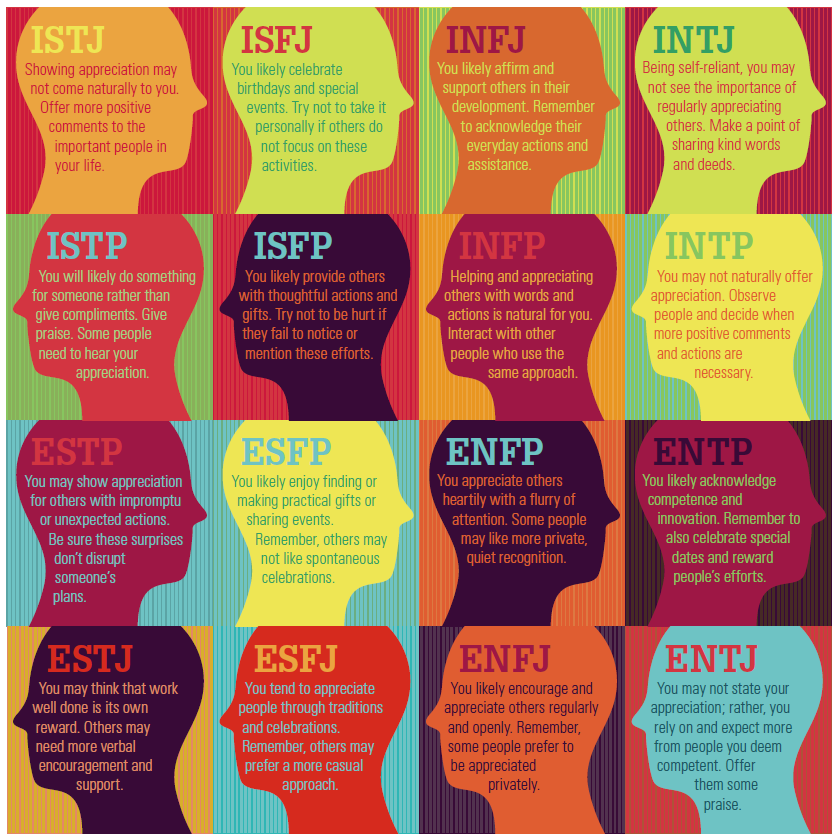 41%), Fiji (3.72%), Cameroon (3.78%).
41%), Fiji (3.72%), Cameroon (3.78%).
Intuitive thinkers, Scientists are ways to go into themselves headlong, but at the same time it is easy to adapt to changes around and adapt flexibly to the conditions put forward by them. They like to question everything, but this is due to the fact that Scientists love to learn everything new and study the incomprehensible. At the same time, INTPs find it difficult to adapt to working in a group, therefore they find ways to remain independent. nine0003
The Scientists superpower is the ability to analyze a hopeless situation without panicking. Where others give up, the Scientist systematizes everything, scatters it and finds a way to fix everything or turn it into a positive. The more complex, the better, INTP will be even more interesting to dig and think. The solution to the problem from the Scientist can be striking in its novelty and simplicity. Everyone would like to get such a skill!
INFJ — "Activist"
🌍 World share: 2%
⭐ Share in Russia: 5.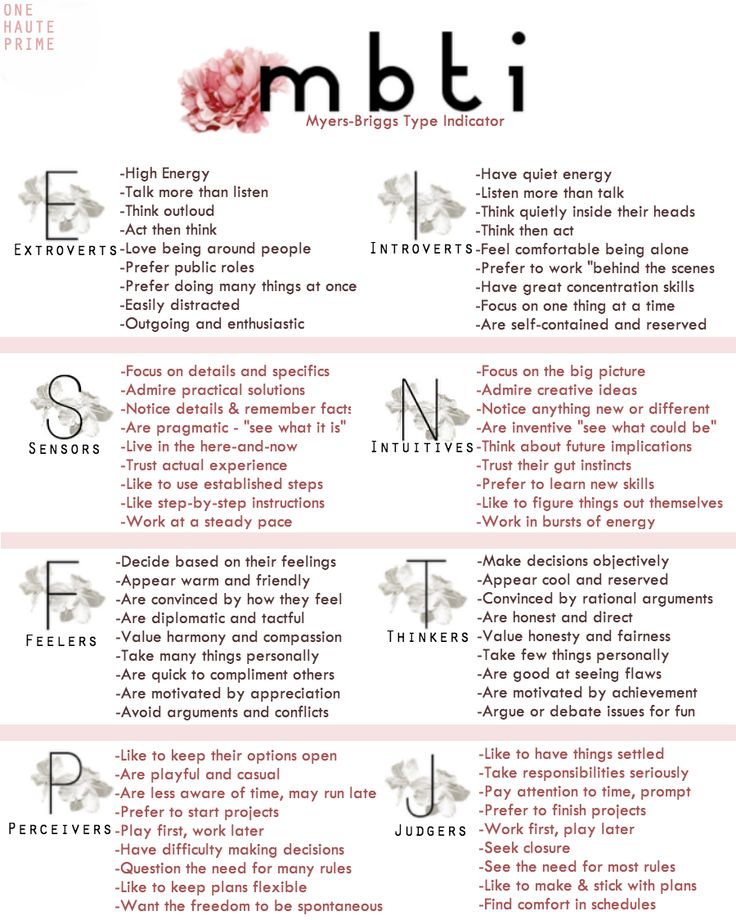 82%
82%
%), Puerto Rico (9.73%).
Top 3 countries with the least number of Activists: Afghanistan (4.63%), Kyrgyzstan (4.75%), Uzbekistan (4.90%).
Well, finally, we got to the rarest type of personality in the world - the Activist. Finding it, calculating it, finding out is quite difficult: these introverts blend in perfectly with the crowd, such is their strategy and the way of the samurai. They can easily pretend to be extroverts in an unfamiliar company if they see it as a benefit. Only at home, the Activist will allow himself to be a real introvert, because only those close to him fully and completely know about their features. nine0003
Not without reason did we mention the ease with which Activists can blend in with the crowd. The fact is that this gift from above helps INFJ easily put himself in the place of other people , play the situation in different ways, looking for the best scenario.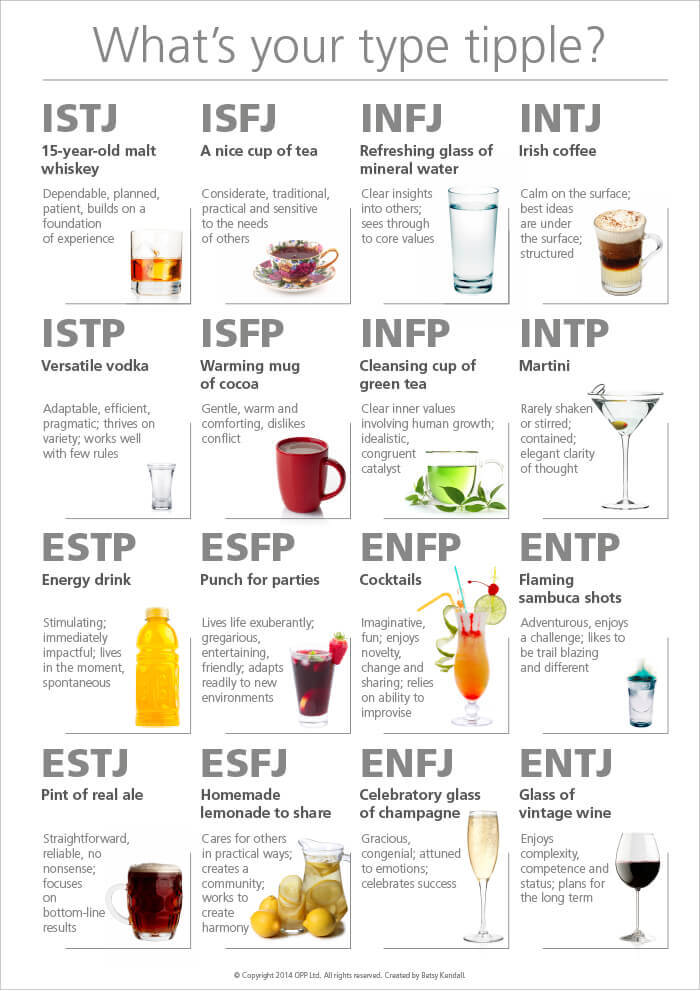 Yes, it is very difficult for someone to see and understand both sides of the conflict, but Activists are ideal negotiators, so they feel great. The main thing for them is to keep the peace.
Yes, it is very difficult for someone to see and understand both sides of the conflict, but Activists are ideal negotiators, so they feel great. The main thing for them is to keep the peace.
Nastya Baskakova
Tags
- personality types
- character
The INFJ personality type, which makes up only 1% of the world's population. Who is included in this category?
The INFJ personality type is considered the rarest, accounting for only about 1% of the world's population. We talk about the main characteristics, strengths and the most suitable professions for this type of personality.
Valeria Skripko
Unsplash
INFJ is one of the 16 Myers-Briggs Personality Types (MBTI). INFJ is deciphered as follows: I - Introversion, N - Intuition, F - Feeling, J - judgment. People with this personality type (sometimes referred to as "advocates" or "idealists") often feel misunderstood.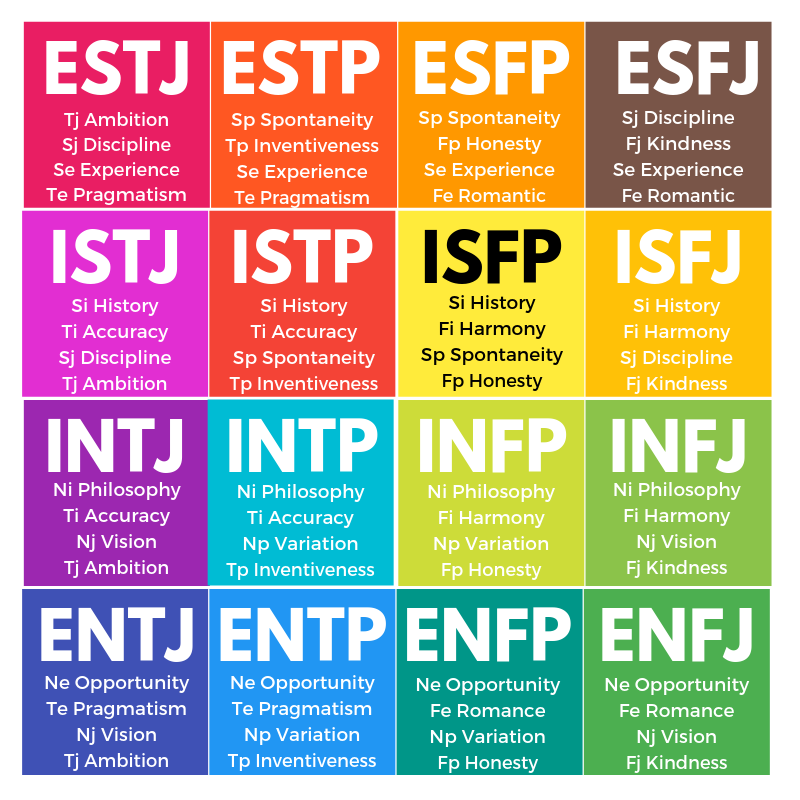 Perhaps this is because they belong to the rarest MBTI personality type, making up between 1% and 3% of the world's population. They are good-natured perfectionists. Intelligent and emotional, creative and analytical. Although the Myers-Briggs personality type test is extremely popular, it has also been heavily criticized, in part due to its low validity and reliability. If you do decide to take this test, be careful when analyzing your results. nine0003
Perhaps this is because they belong to the rarest MBTI personality type, making up between 1% and 3% of the world's population. They are good-natured perfectionists. Intelligent and emotional, creative and analytical. Although the Myers-Briggs personality type test is extremely popular, it has also been heavily criticized, in part due to its low validity and reliability. If you do decide to take this test, be careful when analyzing your results. nine0003
Contents of the article
INFJ is one of the 16 Myers-Briggs Personality Types (MBTI). INFJ is deciphered as follows: I - Introversion, N - Intuition, F - Feeling, J - judgment.
People with this personality type (sometimes called "lawyers" or "idealists") often feel misunderstood. Perhaps this is because they belong to the rarest MBTI personality type, making up between 1% and 3% of the world's population. They are good-natured perfectionists. Intelligent and emotional, creative and analytical. nine0003
nine0003
INFJ Key Characteristics
Compassionate: "lawyers" with their developed intuition and emotional literacy can be quiet and empathetic. However, this does not mean that they are cowards. They are distinguished by deep-rooted beliefs, as well as the ability to act decisively to get what they want.
Assistant: Although people with this personality type are introverts by nature, they can form strong, meaningful bonds with others. Lawyers love helping people, but they also need time and personal space to recharge their batteries. nine0003
Idealist: INFJs are distinguished from others by their ability to translate their idealism into action. They don't just dream of changing the world - they actually do it.
Organized: people with this personality type like to exercise control by planning, organizing and making decisions as soon as they can.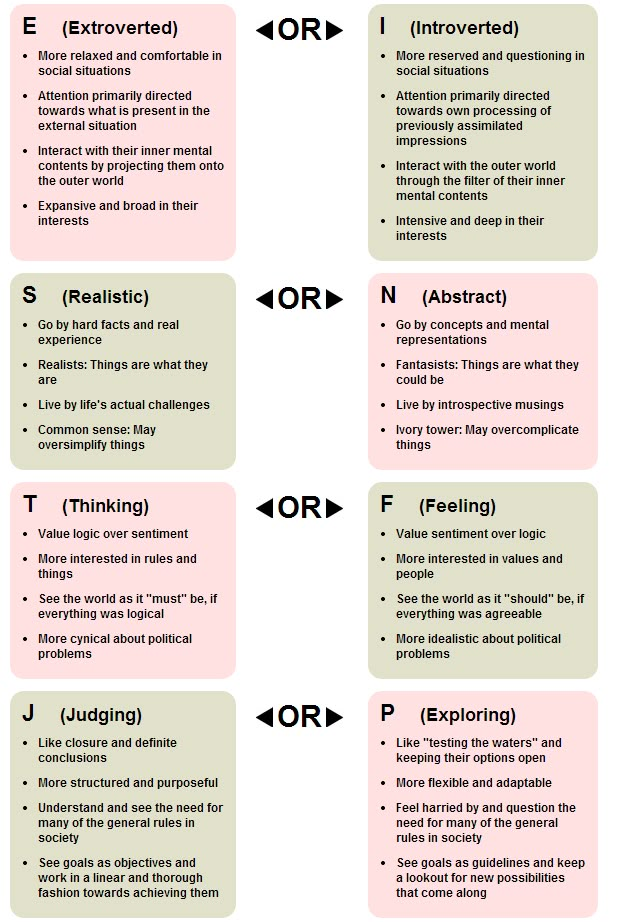
Emotional and Reasonable: INFJs place more emphasis on their emotions than objective facts when making decisions. But this does not mean that they look at the world through rose-colored glasses. INFJs embrace both the good and the bad and hope they can make the world a better place. nine0003
Strengths
- sensitive to the needs of others;
- discreet;
- creative and artistic;
- focus on the future;
- value close, deep relationships;
- like to think about the meaning of life;
- idealistic.
Weaknesses
- may be overly sensitive;
- sometimes it is difficult to get to know them;
- may have high expectations;
- stubborn;
- do not like conflicts.
Cognitive Functions
MBTI was created by Isabelle Briggs Myers and her mother Katherine Briggs in the 1940s based on the theories of the Swiss psychiatrist Carl Jung.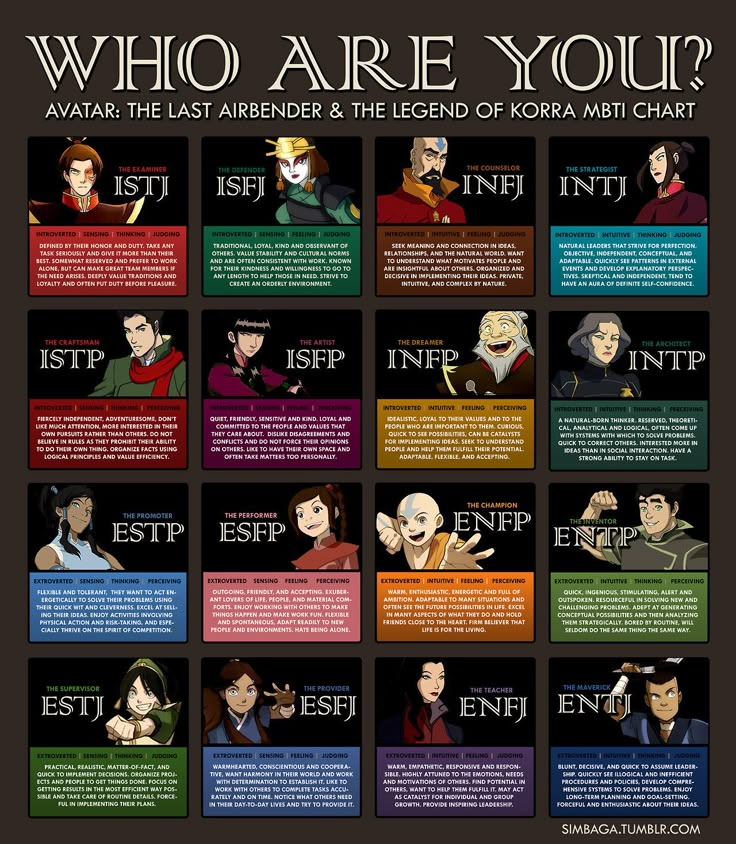 Jung believed that the psychological type of each individual is determined by several mental processes. He identified four key psychological functions: thinking, feeling, sensation and intuition. Each of these functions can be internally focused (introverted) or externally focused (extroverted). nine0003
Jung believed that the psychological type of each individual is determined by several mental processes. He identified four key psychological functions: thinking, feeling, sensation and intuition. Each of these functions can be internally focused (introverted) or externally focused (extroverted). nine0003
MBTI proponents often use what they call a "functional stack" to analyze results. You can think of various cognitive functions as "ingredients" that make up a personality type. The specific "recipe" for each type depends on how these different ingredients combine and interact. The Myers-Briggs typology itself relies on two key factors, which are combined in different ways to get 16 different types. Firstly, these are the functions themselves, and secondly, the hierarchical order of these functions. nine0003
Each type has a dominant function, which is considered its main characteristic. Then comes the auxiliary function, another well-developed side of the personality.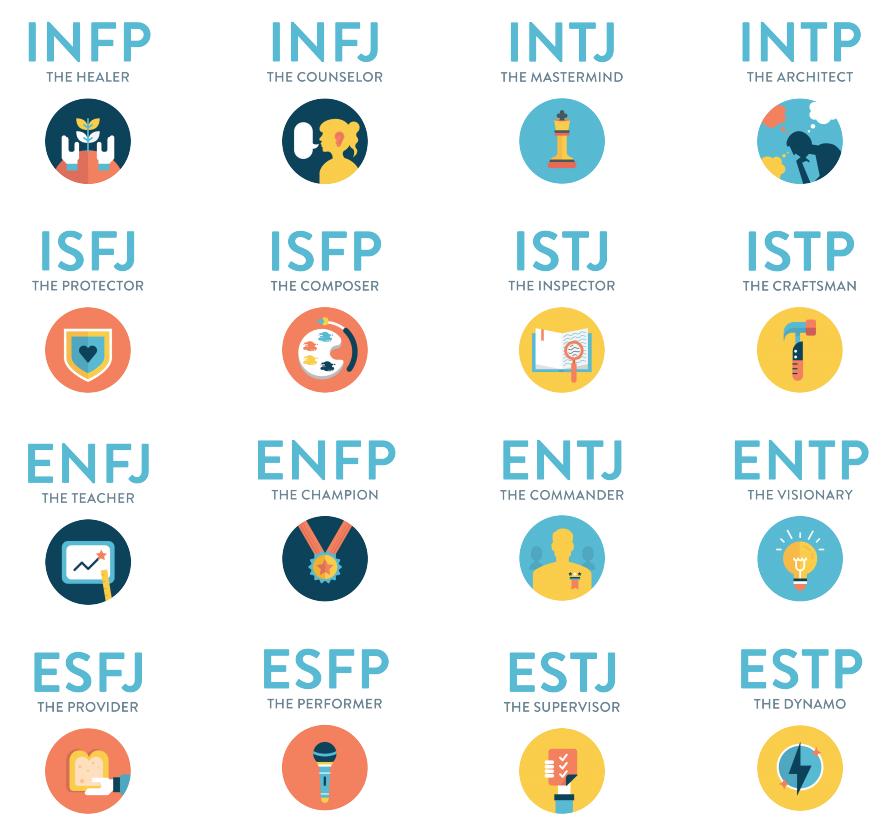 The tertiary and lower functions are less palpable and not as well formed.
The tertiary and lower functions are less palpable and not as well formed.
INFJs tend to rely more on the following cognitive functions:
Dominant function: introverted intuition
- This means that "advocates" are extremely focused on their inner world. nine0213
- Once they have an intuition about something, they tend to stick to that opinion only.
- Because of this, they are sometimes considered stubborn and unshakable.
Auxiliary function: extraverted feeling
- According to this characteristic, INFJs are highly aware of how other people feel, but less aware of their own emotions.
- For this reason, it is sometimes difficult for INFJs to say "No" to other people. They are attentive to other people's feelings and are afraid that people will experience disappointment and resentment. nine0213
Tertiary Function: Introverted Thinking
- INFJs make decisions based on their individual logic.
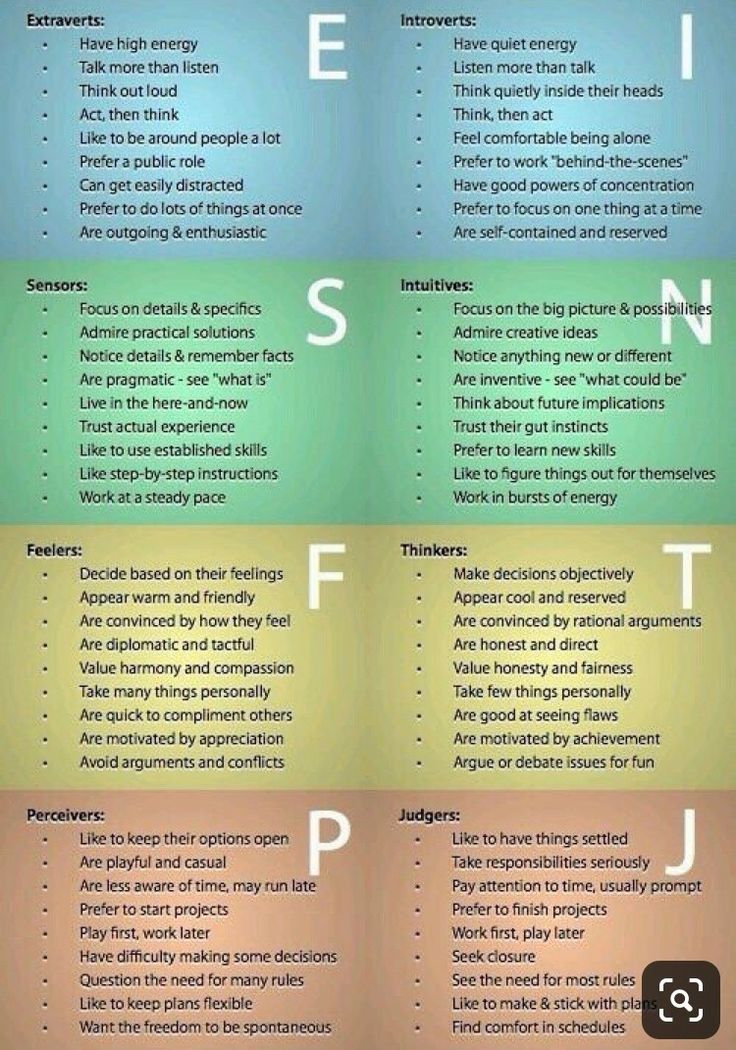
- INFJs rely primarily on their introverted intuition and extraverted feeling when making decisions, especially when they are around others. However, when people with this personality type are left alone, they may rely more on their introverted thinking.
- In stressful situations, INFJs trust their emotions more when making decisions. In less stressful conditions, "lawyers" listen to their intuition. nine0213
Inferior function: extraverted perception
- Although this is a less developed and mostly unconscious aspect of the INFJ, it does have an impact on the personality.
- This personality trait helps INFJs pay attention to the world and their surroundings.
- Thanks to extraverted perception, "lawyers" can live in the present moment without worrying about the future.
- It also helps them truly appreciate physical activities like walking and dancing. nine0213
Famous representatives of the INFJ personality type
- Oprah Winfrey, American TV presenter, actress, producer, public figure;
- Martin Luther King Jr.
 , leader of the civil rights movement;
, leader of the civil rights movement; - Atticus Finch, protagonist of the novel To Kill a Mockingbird by the American writer Harper Lee;
- Carl Gustav Jung, Swiss psychiatrist and educator, founder of analytical psychology;
- Taylor Swift, American singer-songwriter. nine0213
Interpersonal Relationships
INFJs show talent for languages and are usually quite good at expressing themselves. They have a rich inner world, but they often hesitate to share it with others, with the possible exception of the closest people. Although "lawyers" are quiet and sensitive, they can also be true leaders. Even when INFJs do not take on explicit leadership roles, behind the scenes they often act as authority figures.
INFJs are guided by their high moral values and seek meaning in all areas of their lives, including relationships and work. People with this personality type are often described as serious and complex. They may not have a large circle of friends, but their close friendships tend to be quite long. nine0003
They may not have a large circle of friends, but their close friendships tend to be quite long. nine0003
INFJs are interested in helping others and making the world a better place. They tend to be excellent listeners and interact well with people with whom they are emotionally close and connected. Although they care deeply about others, INFJs are usually very reserved and willing to share their true self only with a select few. After interacting with people, INFJs need time to recharge.
Career Path
INFJs thrive in careers where they can unleash their creativity. Because INFJs have deeply held beliefs and values, they are especially good at jobs that uphold these principles. INFJs often thrive in careers where their need for creativity is combined with a desire to make a meaningful difference in the world. nine0003
INFJs tend to be high achievers and do well in school and at work.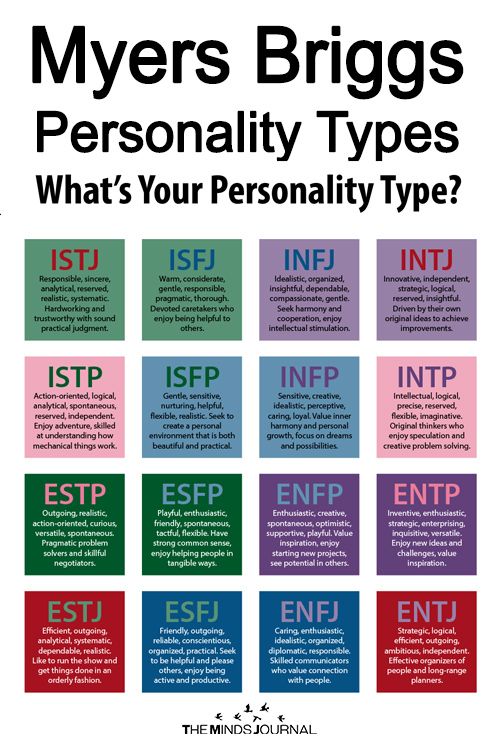 They can sometimes be perfectionists and tend to put a lot of effort into their work. Colleagues find lawyers to be hardworking, positive, and easy to get along with. However, since INFJs are introverted, they need to get away from time to time to get a boost of energy.
They can sometimes be perfectionists and tend to put a lot of effort into their work. Colleagues find lawyers to be hardworking, positive, and easy to get along with. However, since INFJs are introverted, they need to get away from time to time to get a boost of energy.
In leadership positions, INFJs may sometimes experience difficulty in exercising power. They are empathetic leaders, so subordinates feel that they are valued in the workplace. Routine work that requires adherence to strict rules can be too difficult for an INFJ. nine0003
Possible professional directions for INFJ
- artist;
- actor;
- entrepreneur;
- religious worker;
- musician;
- librarian;
- consultant;
- psychologist;
- writer;
- teacher;
- photographer.
INFJ Engagement Tips
Friendship
Because they are reserved and secretive, INFJs can be hard to get to know.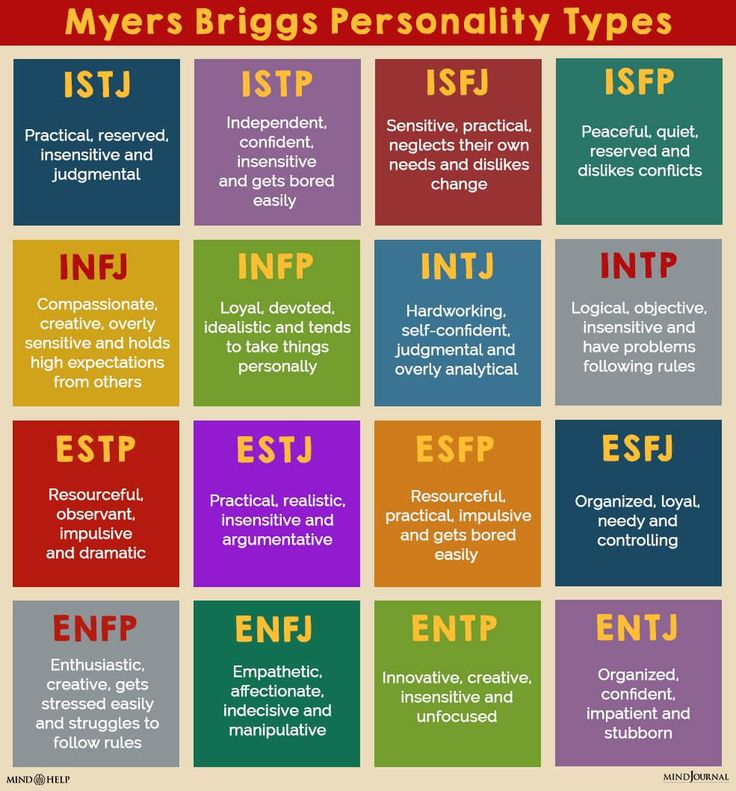 Lawyers place a high value on close, deep relationships and are easily offended, although they often hide these feelings from others. Communication with INFJs suggests that their needs for privacy and recharge will be treated with understanding. People with this personality type sometimes feel misunderstood. If you take the time to understand their point of view and appreciate their strengths, you can become a good friend. nine0003
Lawyers place a high value on close, deep relationships and are easily offended, although they often hide these feelings from others. Communication with INFJs suggests that their needs for privacy and recharge will be treated with understanding. People with this personality type sometimes feel misunderstood. If you take the time to understand their point of view and appreciate their strengths, you can become a good friend. nine0003
Parenting
Because INFJs are so adept at understanding the feelings of others, they tend to be very close with their children. "Lawyers" raise children to be kind, caring and compassionate. INFJs want the younger generation to develop their interests and talents and realize their full potential.
Relationships
INFJs have an innate ability to understand other people's feelings and enjoy close, deep relationships. They tend to feel best in romantic relationships with people with whom they share their core values.